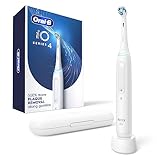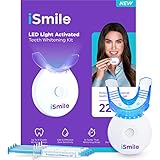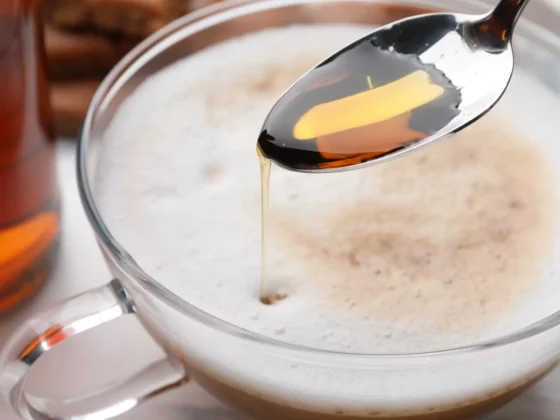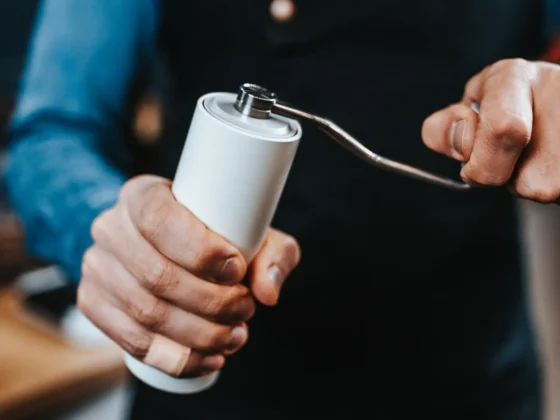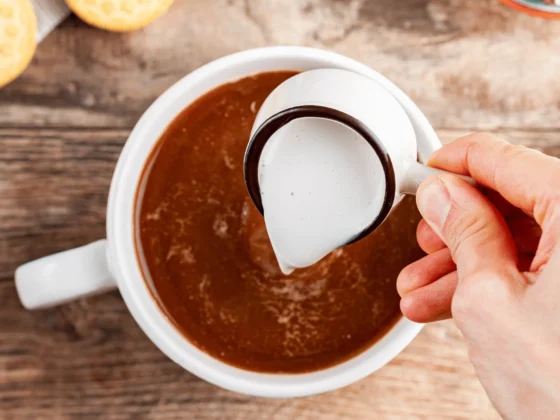Coffee, a widely cherished and adored beverage among millions of individuals globally, has been the subject of a rather pressing query that has lingered in the minds of many – does coffee stain your teeth? Regrettably, the response to this inquiry is in the affirmative. The high concentration of tannins and the dark pigmentation of coffee can contribute to the development of aesthetically unappealing stains that could cause even the most vibrant grin to lose its radiance.
However, fret not, as all is not lost. In this extensive and comprehensive exposé on the subject matter, we will delve into the intricate workings of coffee stains, efficacious methodologies to shield your precious teeth from the aforementioned blemishes, and highly regarded and well-respected recommendations on how to whiten your teeth. Upon the conclusion of this piece, it is guaranteed that you will be equipped with the appropriate comprehension and tools required to indulge in your favorite cup of java whilst upholding the wellbeing of your teeth and achieving a sparkling, luminescent smile.
Coffee Stains Teeth: Key Takeaway
- Coffee stains on teeth are caused by the tannins and acidity found in coffee, which can bind to tooth enamel and cause discoloration.
- To prevent coffee stains, try drinking coffee through a straw, rinsing your mouth with water after consuming coffee, lightening your coffee with milk or a milk alternative, and practicing good oral hygiene.
- Whitening treatments, including over-the-counter products, professional treatments, and home remedies, can help remove coffee stains from teeth.
- Coffee stains themselves are primarily a cosmetic concern, but the factors that contribute to staining can weaken tooth enamel and promote dental issues like cavities and gum disease.
- With proper preventive strategies and dental care, you can continue to enjoy coffee without sacrificing your beautiful smile.
The Science Behind Coffee Stains
Understanding how coffee stained teeth occur is crucial to finding ways to prevent and treat them. The three primary factors that contribute to coffee stains are the direct staining of teeth, the role of tannins, and the acidic pH of coffee. Let’s take a closer look at each of these factors.
How Coffee Stains Teeth
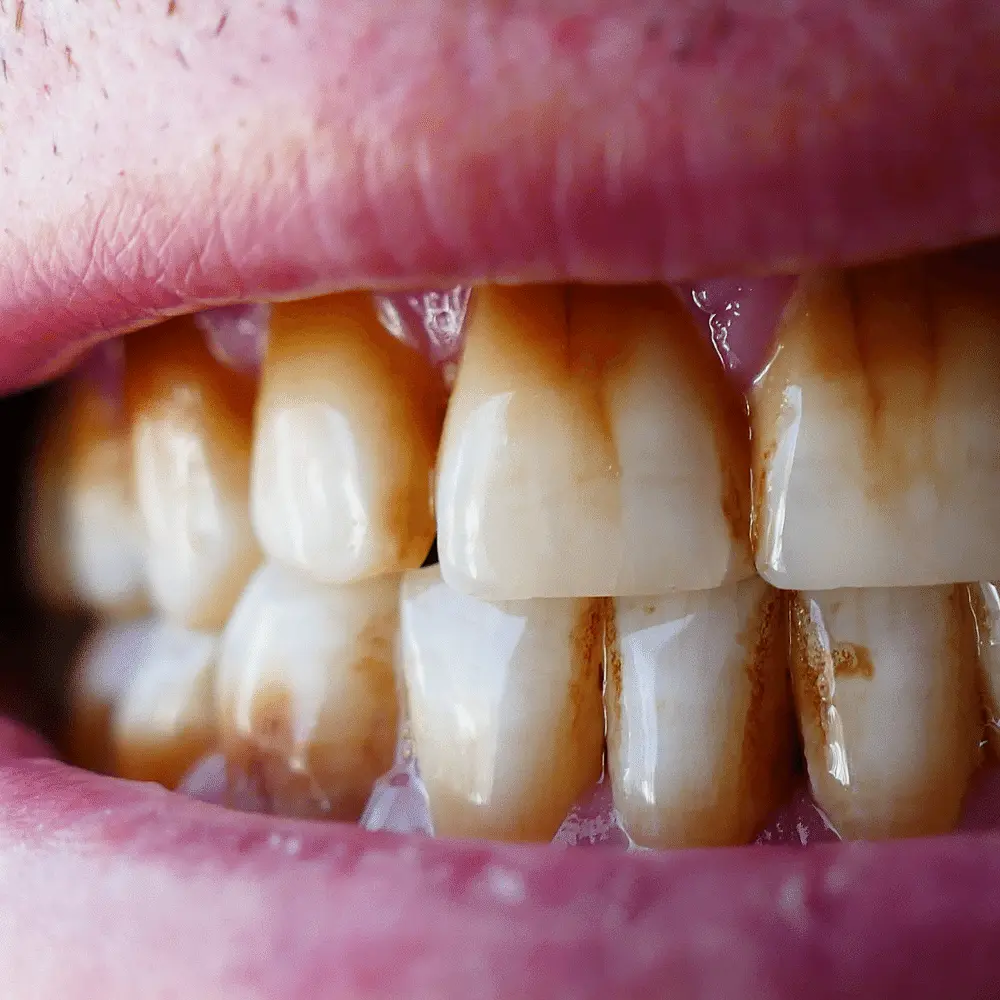
Coffee is a complex beverage that contains various organic compounds that contribute to its rich, dark color. When consumed, these dark pigments can attach to the surface of your tooth enamel, causing discoloration over time. The more frequently you drink coffee, the higher the chances of developing coffee stained teeth.
Tannins and Tooth Enamel
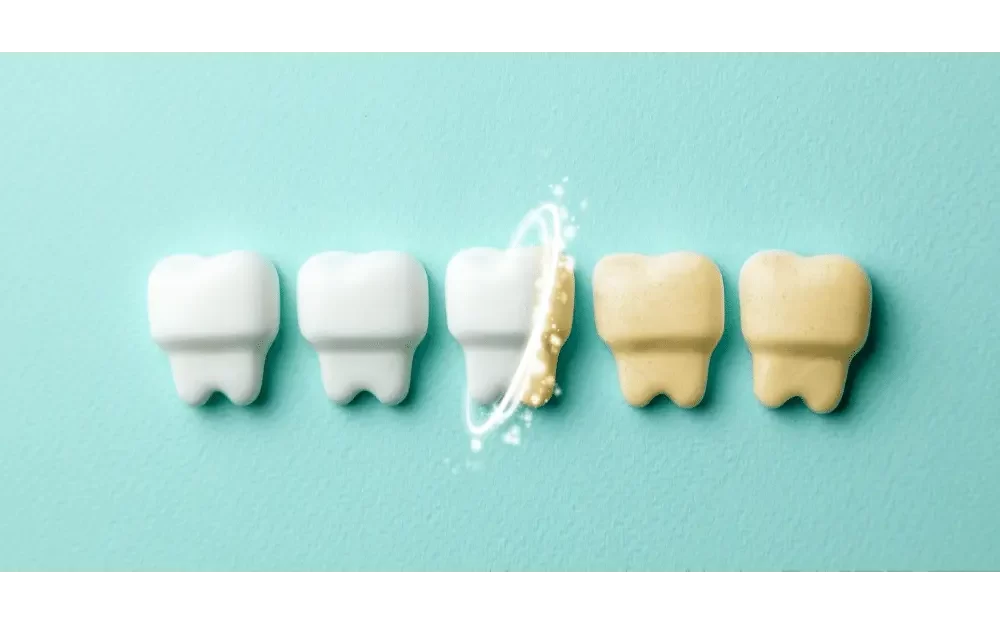
Tannins are a naturally occurring compound found in coffee beans and various other plants. They are responsible for the bitter taste and astringency of coffee, as well as its staining potential. Tannins can bind to proteins on the tooth enamel, creating a rough surface that attracts and holds on to the dark pigments in coffee. This process results in the formation of stubborn stains on your teeth. (1)
The Role of Acidic pH in Staining
Coffee is an acidic beverage, typically ranging from 4.5 to 6.0 on the pH scale. This acidity can weaken tooth enamel, making it more prone to staining. Furthermore, the acidic environment in your mouth can promote the growth of harmful bacteria that contribute to dental problems such as tooth decay and gum disease. These factors, combined with the presence of tannins and dark pigments in coffee, make it a potent staining agent for your teeth.
Prevention Strategies for Coffee Stains
If you’re a coffee lover, you’re probably wondering how to drink coffee without staining teeth. Fortunately, there are several prevention strategies that can help you maintain a bright and healthy smile while enjoying your favorite beverage. (2)
Drinking Coffee Through a Straw

Using a straw to sip your coffee can minimize direct contact between the liquid and your teeth, reducing the risk of staining. By bypassing the front surface of your teeth, the dark pigments in coffee are less likely to adhere to your enamel. Opt for a reusable straw to make this habit more environmentally friendly.
Practicing Good Oral Hygiene

Maintaining proper oral hygiene is crucial for preventing coffee stains. Brush your teeth at least twice a day, ideally after consuming coffee, to remove any lingering pigments that could lead to staining. Flossing daily and using an antibacterial mouthwash can also help keep your teeth and gums healthy, reducing the likelihood of developing stains and other dental issues.
Regular Dental Checkups and Cleanings
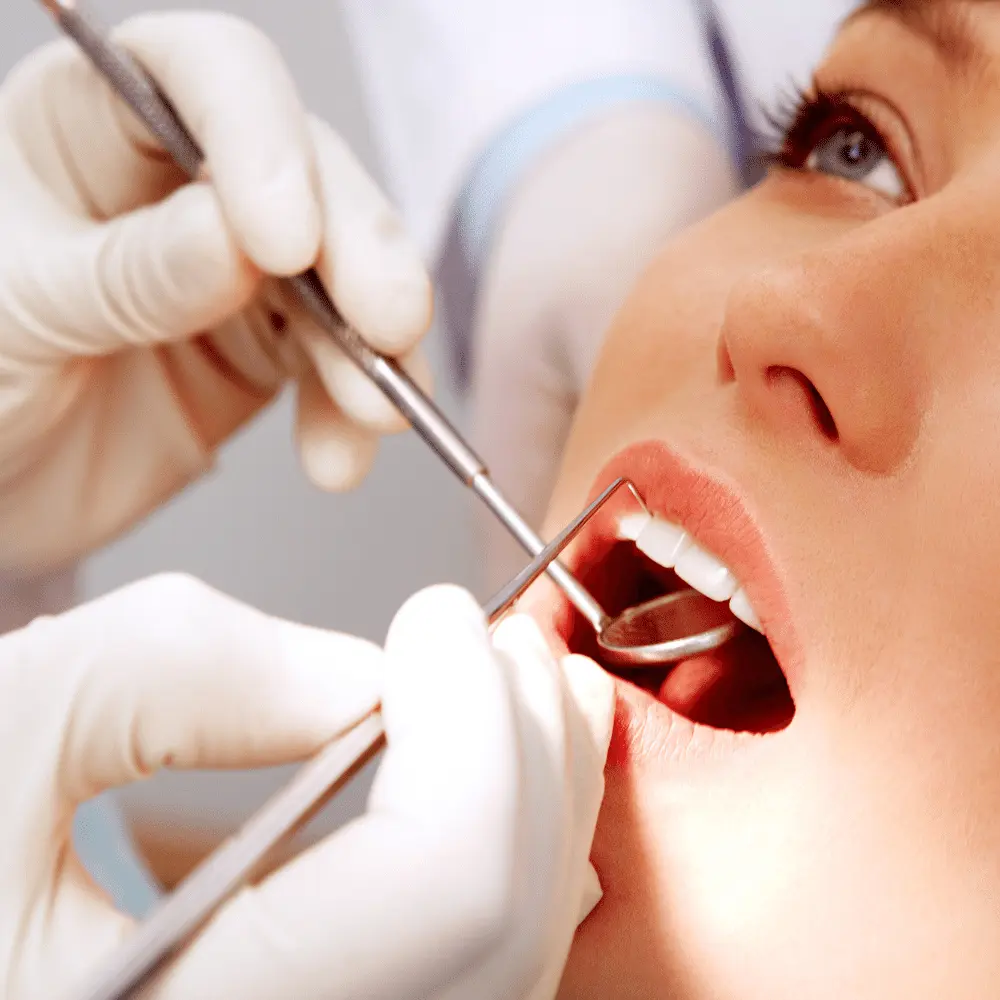
Visiting your dentist regularly for checkups and professional cleanings is essential for keeping your teeth stain-free. Dentists can remove stubborn coffee stains that are difficult to eliminate through brushing alone. They can also identify and address any underlying dental issues that may be contributing to the discoloration of your teeth. Aim for dental checkups and cleanings every six months to maintain a bright, stain-free smile.
Adopting a Lighter Coffee

One straightforward strategy for diminishing the probability of coffee stains is to adopt a lighter coffee by adding milk or a milk alternative. Incorporating milk into your coffee not only weakens the pigments that cause staining but also helps neutralize the acidity that can expedite enamel erosion. Choose a lighter roast coffee as it generally encompasses fewer tannins and may be less likely to cause staining in comparison to darker roasts.
Rinsing with Water After Drinking Coffee

Rinsing your mouth with water after enjoying a cup of coffee can help wash away pigments and acids that contribute to staining and enamel erosion. Swishing water around your mouth for a few seconds can remove lingering coffee particles and minimize the time your teeth are exposed to staining agents. Make it a habit to rinse with water after drinking coffee to protect your smile.
Limiting Coffee Intake

Reducing the number of cups of coffee you consume each day can help decrease the risk of staining your teeth. Limiting your coffee intake to one or two cups per day and avoiding sipping on it throughout the day can minimize the time your teeth are in contact with staining agents. Consider replacing some of your daily coffee consumption with other beverages, such as water or herbal tea, to maintain a stain-free smile while staying hydrated.
Teeth Whitening and Stain Removal Options
If you have the lamentable predicament of dealing with discolored teeth due to imbibing coffee, you might be wondering how to remove coffee stains from teeth effectively. Thankfully, there are a plethora of options available for teeth whitening and stain removal, including over-the-counter products, professional treatments, and even home remedies.
Over-the-Counter Whitening Products
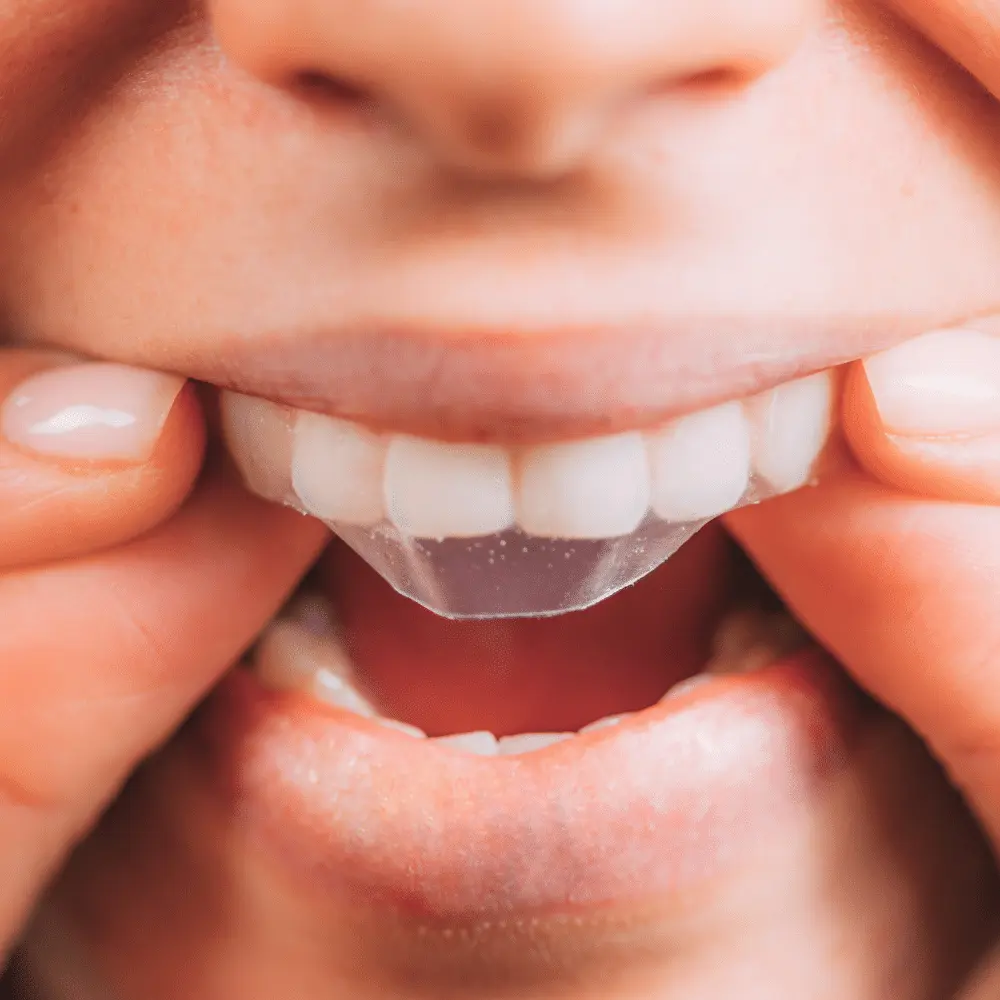
Over-the-counter teeth whitening products are available in copious amounts and are intended to remove stains and brighten your smile. Whitening toothpastes, strips, gels, and trays can be procured at most drugstores and are generally facile to use. These products typically encompass mild abrasives or low concentrations of bleaching agents that can aid in removing surface stains from your teeth. However, it is imperative to bear in mind that results may diverge and excessive utilization of some products may cause tooth sensitivity.
Professional Teeth Whitening Treatments
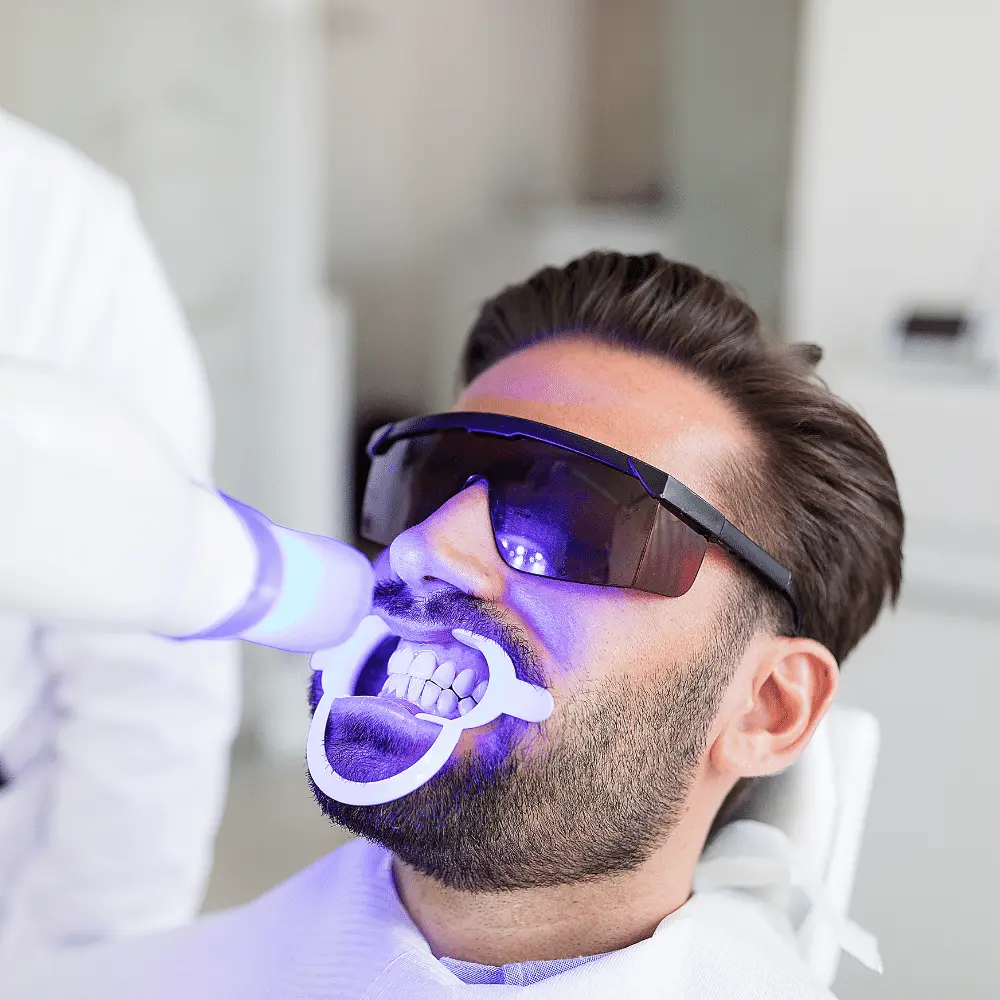
In cases of obstinate coffee stains or when expediency is of the essence, it may be worthwhile to consider availing of professional teeth whitening treatments. Dental professionals offer in-office treatments, such as laser whitening that can furnish more remarkable and enduring results in comparison to over-the-counter products. Even though professional treatments may incur higher costs, they possess the advantage of being supervised by a dental expert to guarantee safety and efficacy.
Home Remedies for Stain Removal
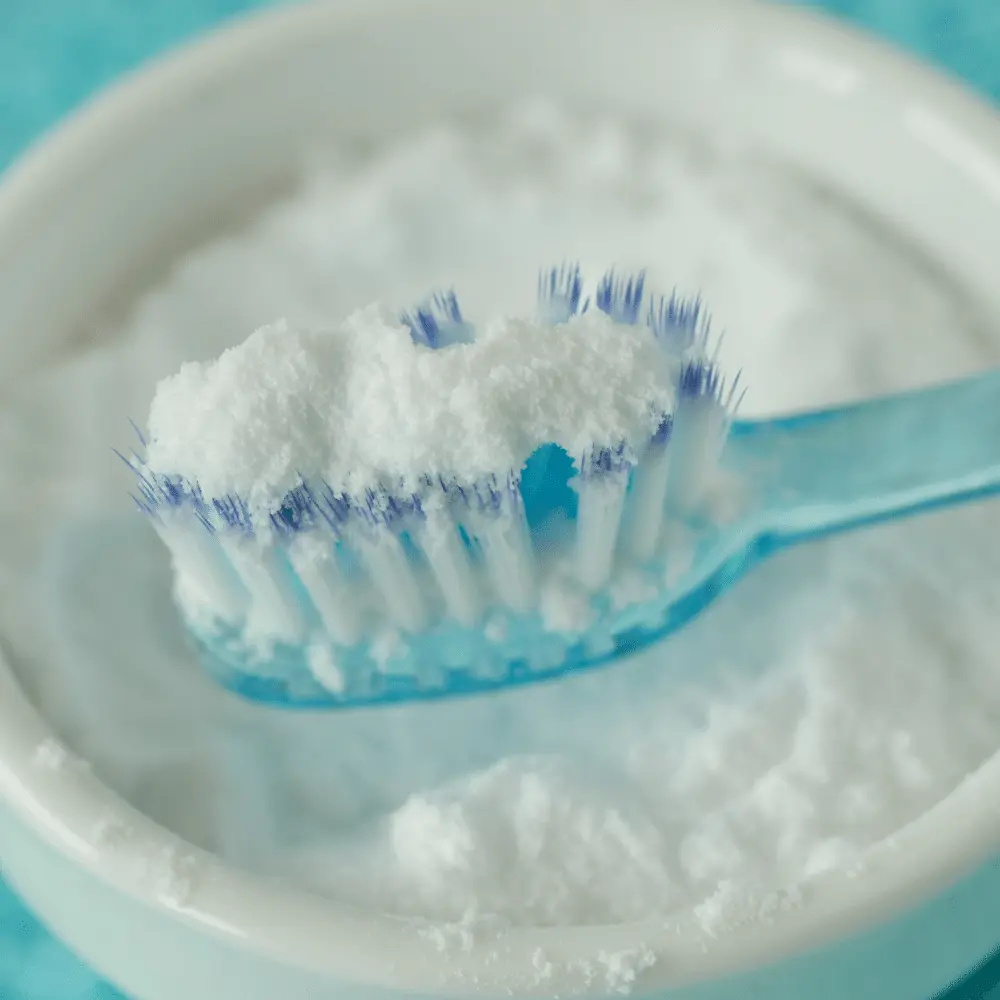
Some individuals may opt to experiment with home remedies for eliminating coffee stains from their teeth. One prevalent method is to concoct a paste from a mixture of baking soda and water, which can be applied to the teeth. The gentle abrasive qualities of baking soda can aid in getting rid of surface stains. Nevertheless, it is vital to exercise caution while using this method since excessive use of baking soda can inflict damage on the tooth enamel. Always consult with your dentist before attempting any home remedies to ensure they are harmless and appropriate for your dental requirements. (3)
The Impact of Coffee Stains on Oral Health
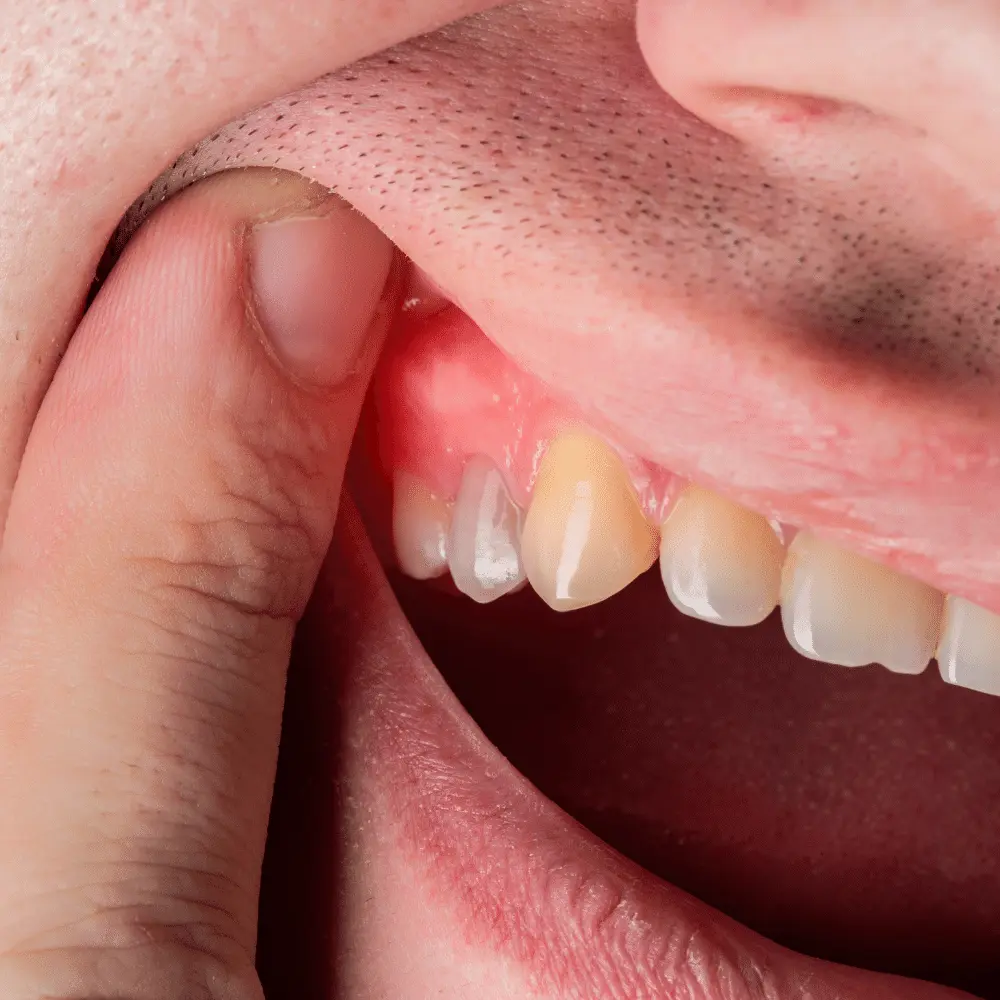
While coffee stains on teeth may be primarily cosmetic, they can still have a significant impact on your overall oral health and well-being. In this section, we will explore the long-term effects of coffee stains, their connection to dental issues, and the importance of maintaining a bright, healthy smile.
Long-Term Effects of Coffee Stains
Over time, coffee stains can become more persistent and challenging to remove. As the stains darken and accumulate, they can lead to a dull, discolored appearance. Additionally, the staining can create a rough surface on the tooth enamel, attracting more bacteria and increasing the risk of plaque buildup and tooth decay.
Coffee Stains and Dental Issues
Although coffee stains themselves may not be the root cause of dental issues, the same contributing factors that lead to staining, such as acidity and tannins, can weaken tooth enamel and cultivate bacterial proliferation. This environment can give rise to dental problems, such as cavities, gum disease, and halitosis. It is imperative to maintain proper oral hygiene and seek regular dental care to minimize the possibility of developing these issues.
Boosting Confidence with Whiter Teeth
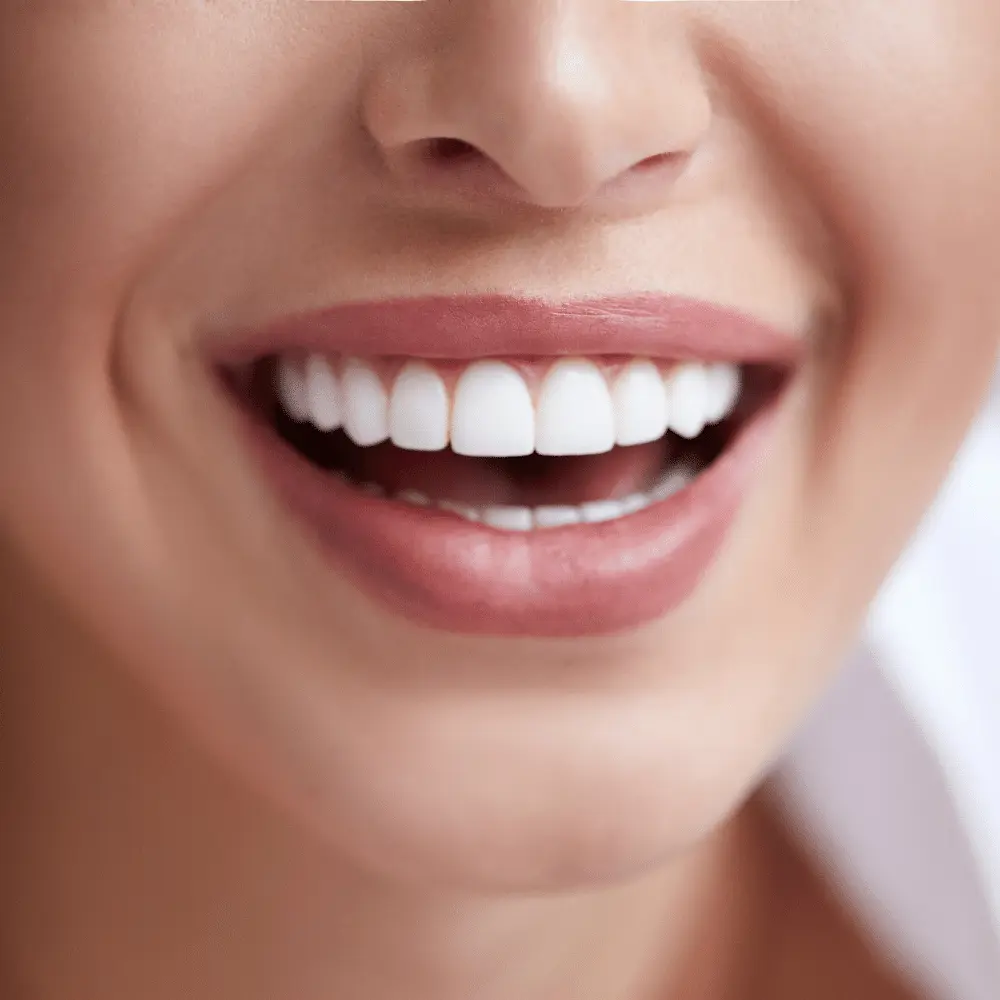
Having a radiant, white smile can have a significant impact on your self-esteem and confidence. Eradicating coffee stains from your teeth and preserving a healthy smile can make you feel more at ease in social situations and professional settings. A stain-free smile not only appears visually appealing but also signifies that you prioritize your oral health and overall well-being.
Conclusion
In conclusion, the answer to the question, “Does coffee stain your teeth?” is a definite yes. Nevertheless, this all-inclusive guide has demonstrated that there are myriad ways to prevent and treat coffee stains on your teeth. By comprehending the scientific principles underlying coffee stains, implementing preventative measures, exploring whitening alternatives, and upholding good oral hygiene, you can continue to indulge in your preferred caffeinated beverage without compromising the beauty of your smile.
It is essential to remember that moderation is crucial, and taking the necessary precautions to shield your teeth from staining will not only uphold the appearance of your smile but also contribute to overall better oral health. Therefore, don’t allow the apprehension of coffee-stained teeth to hold you back – relish your coffee responsibly and take care of your pearly whites.
FAQ
How can I prevent coffee stains on my teeth?
To prevent coffee stains on your teeth, try drinking coffee through a straw, rinsing your mouth with water after consuming coffee, lightening your coffee with milk or a milk alternative, and practicing good oral hygiene. Regular dental checkups and cleanings can also help prevent staining and maintain a healthy, bright smile.
What are the best teeth whitening treatments for coffee stains?
There are several teeth whitening treatments available to remove coffee stains, including over-the-counter whitening products (such as toothpaste, mouthwash, and whitening strips), professional teeth whitening treatments performed by a dentist, and home remedies like using baking soda or activated charcoal. The best treatment for you depends on the severity of the stains and your personal preferences.
Are coffee stains on teeth harmful to my oral health?
Coffee stains themselves are primarily a cosmetic concern, but the factors that contribute to staining, like acidity and tannins, can weaken tooth enamel and promote bacterial growth. This environment can lead to dental issues like cavities, gum disease, and bad breath. It's essential to maintain proper oral hygiene and seek regular dental care to minimize the risk of developing these problems.
Can I still enjoy coffee without staining my teeth?
Yes, you can still enjoy coffee without staining your teeth. By implementing preventive strategies, like drinking through a straw, rinsing with water after consuming coffee, lightening your coffee, and maintaining good oral hygiene, you can minimize the risk of staining while continuing to enjoy your favorite caffeinated beverage.








